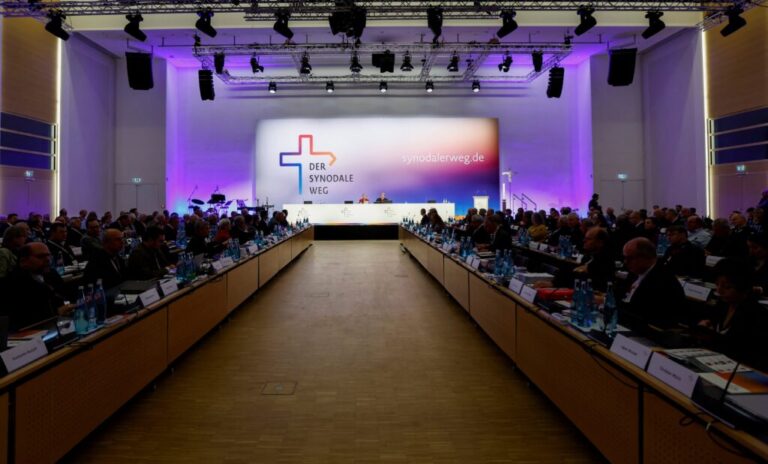The Central Committee of German Catholics (ZdK) has reaffirmed its determination to continue the course of reforms taken by the Catholic Church in Germany. The president of the ZdK, Irme Stetter-Karp, called on the country’s bishops to implement the Synodal Path’s resolutions in all dioceses.
At the beginning of the two-day plenary assembly of the committee on Friday in Munich, Stetter-Karp also expressed “anger” about the recent reactions of some bishops and cardinals to the decisions of the German reform dialogue, such as Rome’s rejection of laypeople being allowed to carry out baptisms. “We are witnessing a Church in which men are cementing their power,” she said.
“As an absolutist system of power, this Church must come to an end,” added Stetter-Karp. The “winds of change” must “blow into the furthest corners of this encrusted system”.
The ZdK president is counting on the Synodal Committee, which is to continue joint deliberations and decision making between bishops and laypeople, starting its work as planned in November. According to ZdK General Secretary Marc Frings, however, the Association of German Dioceses has not yet decided on the financing of this project.
The ZdK presidium also made it clear that some rules of the Synodal Path would have to be changed in a future joint committee with the German Bishops’ Conference. It will no longer be acceptable to link decisions to a two-thirds majority of the bishops, said Stetter-Karp. This is a “painful learning experience” to come out of the Synodal Path.
In recent months a minority of bishops have expressed “that they are asking fundamental questions about the legitimacy of the path they have taken”. Stetter-Karp saw this as a “sign of weakness” in the Bishops’ Conference. However, the Synodal Path was not an initiative of the ZdK, but of the Bishops’ Conference.
ZdK vice president Thomas Soeding added: “We adhere to the joint resolutions”. They offer “a great opportunity to lead the Catholic Church out of the paralysing stalemate on reforms”. Matthias Sellmann, a pastoral theologian from Bochum, criticised how the bishops were not exercising any leadership. Therefore, the Central Committee must now take on a leadership role.
Stetter-Karp was critical of the status of the reappraisal of sexual abuse in the German dioceses. She has doubts about the bishops’ willingness to provide comprehensive information.
As a guest at the assembly, Bavaria’s Minister-President Markus Soeder called on the Catholic Church to “solve the issue of sexual abuse credibly and conclusively”. This is necessary “so that there is peace again, including in our communities”, he said. From the point of view of victims and the general public, it took far too long for the Church to react to the first reports.
As a Protestant politician, Soeder did not want to make any recommendations for the Synodal Path, the project for reforms within the Catholic Church in Germany. He didn’t know if this path was the right one or the wrong one, said Soeder. As a “conservative but cosmopolitan person”, he thinks it is right to bless the love between people of all genders, if motorway service areas, cable car gondolas or hamsters also get blessed.
The general meeting of the ZdK ends on Saturday. Other topics are the war in Ukraine and the reappraisal of sexual abuse in the Church.
First published by KNA Germany.



